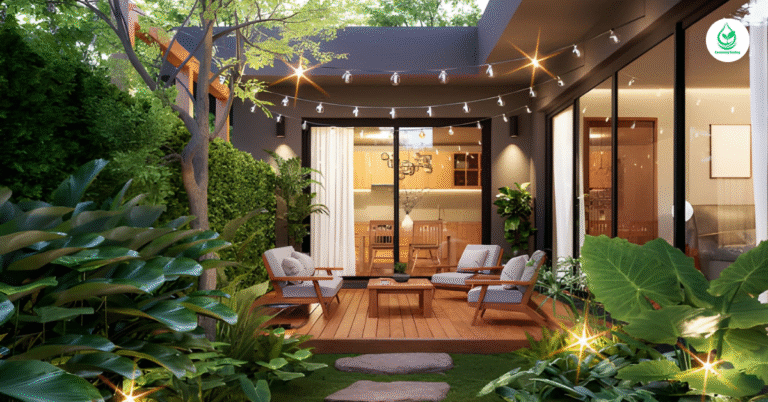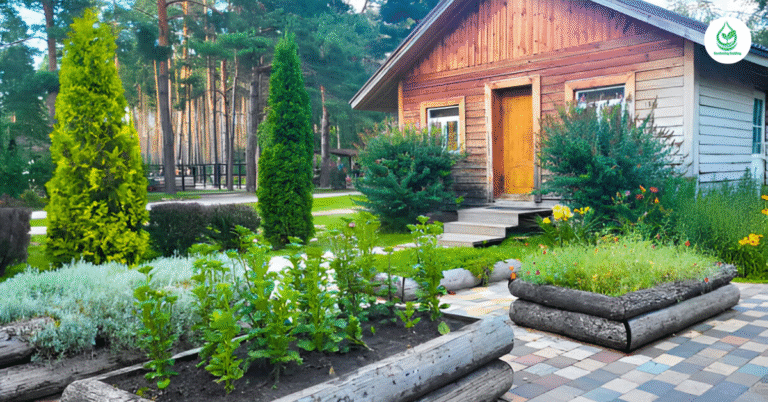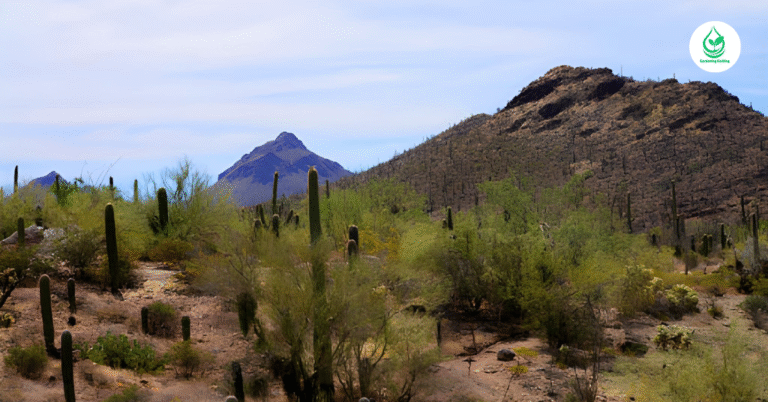5 Bamboo Garden: Why It’s the Best Eco-Friendly Landscaping Choice

Introduction
A bamboo garden is not just a landscape choice — it’s a lifestyle statement that reflects sustainability, beauty, and balance with nature. Whether you have a small backyard or a spacious property, bamboo can completely transform your space into a green, serene paradise. It’s one of the most eco-friendly plants on the planet, thriving with little maintenance while offering endless benefits for the environment.
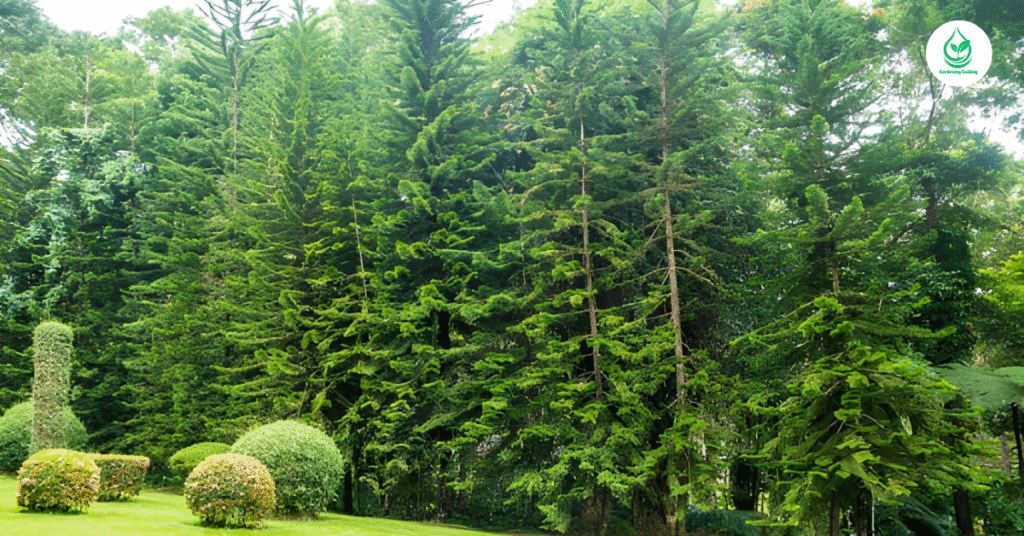
In a world where eco-conscious living is becoming essential, bamboo stands out as a smart and sustainable choice. Its fast growth, low water requirement, and ability to regenerate make it an ideal plant for those who care about the planet and still want elegance in their garden. Let’s explore five powerful reasons why bamboo gardens are the best eco-friendly landscaping option for modern homes.
1. Bamboo Gardens Promote Sustainability Naturally
Bamboo is one of nature’s most renewable resources. Unlike hardwood trees that take 20 to 50 years to mature, bamboo can grow several feet in just a single day. Once harvested, it grows back from the same root system, eliminating the need for replanting. This natural regeneration makes bamboo an eco-warrior, helping reduce deforestation and preserving forest habitats around the world.
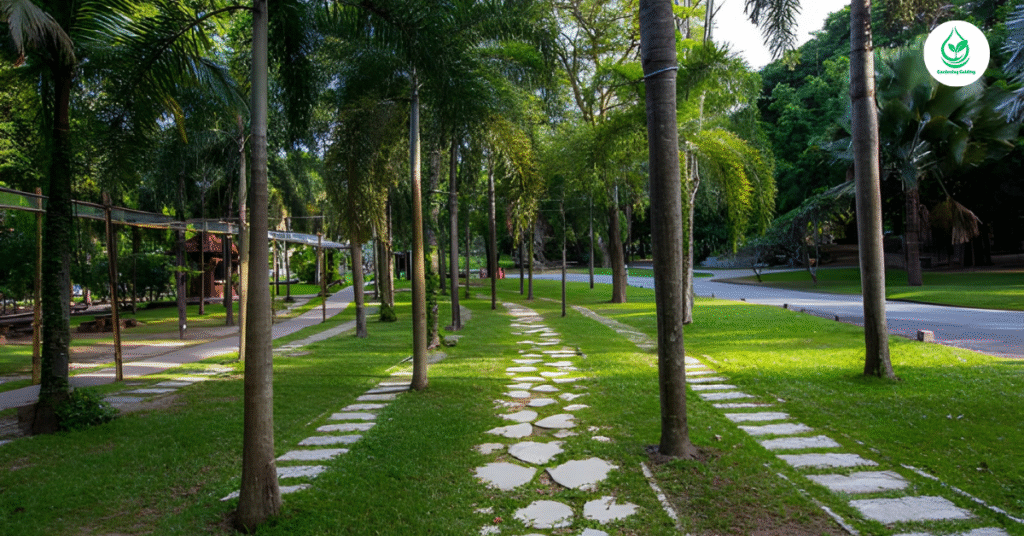
Beyond its growth rate, bamboo also plays a major role in reducing carbon emissions. It absorbs carbon dioxide from the air and releases up to 35% more oxygen compared to most trees. Having a bamboo garden means cleaner air, a fresher environment, and a step toward combating global warming — all while adding a beautiful touch to your home.
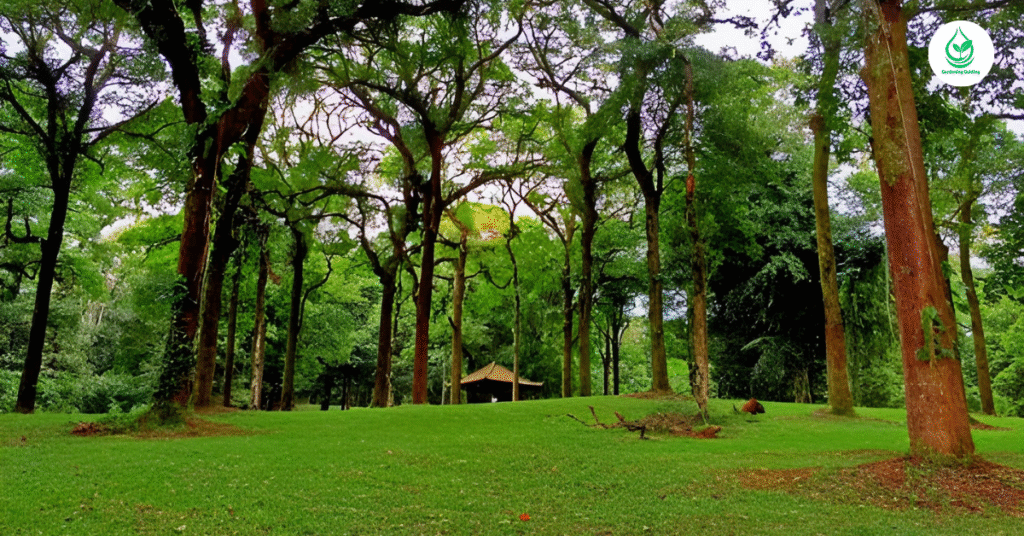
Bamboo roots also help protect the soil. They spread deep underground, holding the soil firmly in place, preventing erosion, and keeping the ground healthy. In regions with heavy rain or sloped landscapes, bamboo acts as a natural shield against landslides and nutrient loss.
2. Bamboo Adds Natural Beauty and Serenity
When it comes to aesthetic appeal, bamboo is simply unmatched. The tall, graceful stalks and gentle swaying leaves instantly bring a sense of calm and natural elegance to any outdoor setting. Whether planted in clusters or designed as a backdrop for flowers and pathways, bamboo gives your garden a tranquil, zen-inspired atmosphere.
It’s also perfect for creating natural privacy screens. If you live in a crowded neighborhood or near a busy street, bamboo serves as a living wall that blocks noise and unwanted views. Within months, you’ll have a lush green barrier that not only protects your privacy but also enhances your garden’s charm.
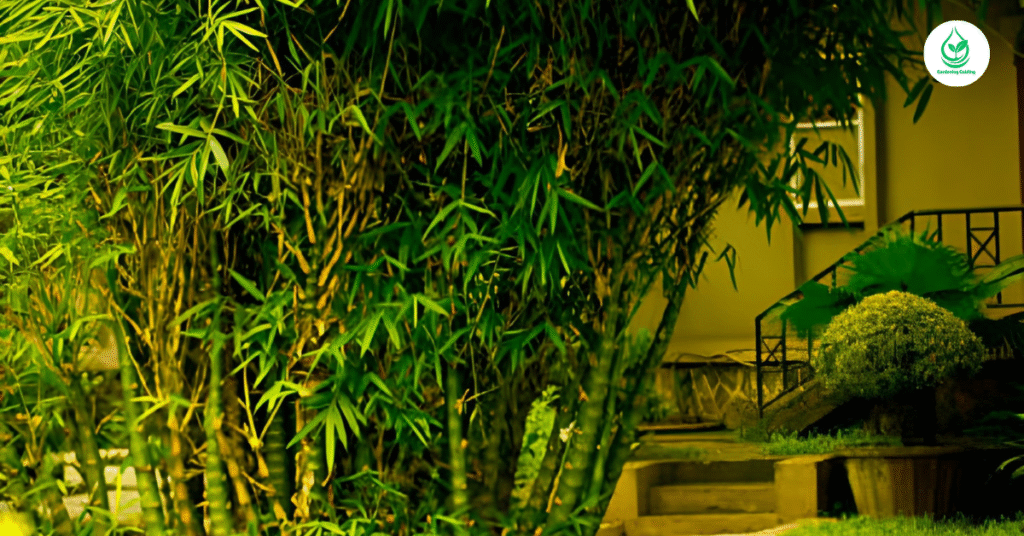
Bamboo’s symbolism adds another layer of beauty. In many cultures, bamboo represents strength, flexibility, and peace. The sound of rustling bamboo leaves in the wind is soothing and therapeutic, making your outdoor space a personal retreat where you can meditate, unwind, and reconnect with nature.
3. Bamboo Gardens Are Low-Maintenance and Long-Lasting
One of the biggest reasons homeowners love bamboo is how easy it is to maintain. Once established, bamboo doesn’t need constant attention like many other ornamental plants. It requires minimal watering, thrives in both sunlight and partial shade, and is naturally resistant to pests.
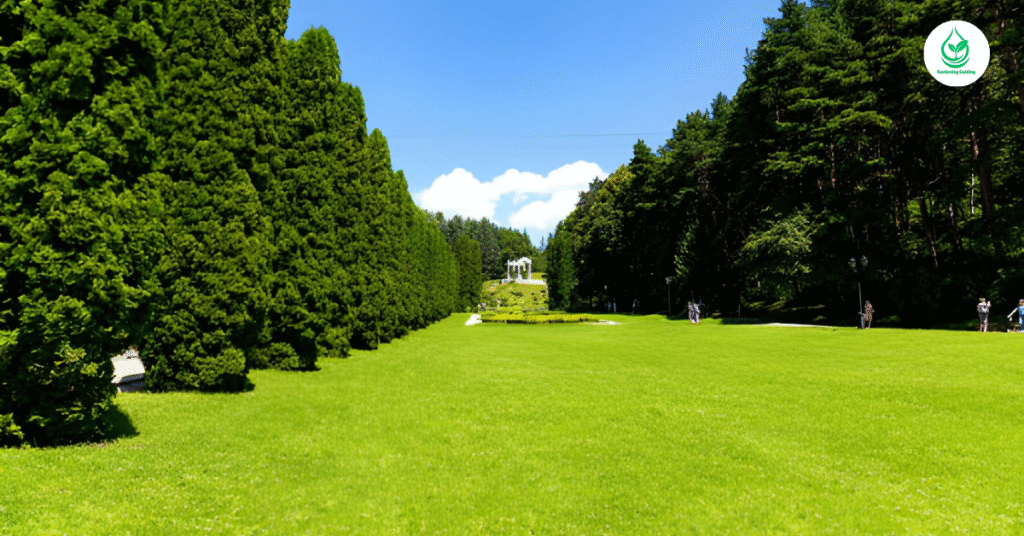
Unlike high-maintenance lawns that need frequent mowing and fertilizing, bamboo simply grows beautifully on its own. You can prune it once or twice a year to maintain your desired height or shape. Plus, its durability ensures that it stays green all year round — no matter the season.
Bamboo is also known for its impressive lifespan. Once your garden is established, it can last for decades without needing replanting. This longevity makes it a cost-effective and eco-conscious investment for long-term garden design.
4. Bamboo Supports Eco-Friendly Construction and Design
Bamboo isn’t just for gardens — it’s also becoming a top choice in sustainable architecture and landscaping materials. It’s lightweight yet stronger than many hardwoods, making it ideal for fencing, decks, pergolas, and garden furniture. Because bamboo grows quickly and doesn’t need replanting, it’s a renewable alternative to timber, helping reduce the demand for deforestation.
Designers love bamboo for its versatility. You can use it to build natural pergolas, create garden borders, or even craft decorative structures like trellises and arches. Its smooth texture and golden-green color blend beautifully with plants, stones, and water features, giving your garden an elegant, earthy aesthetic.
Moreover, bamboo’s natural properties make it resistant to warping and cracking. With proper treatment, it can withstand heat, humidity, and rain — making it perfect for outdoor use. So, when you design your landscape with bamboo, you’re choosing a material that’s strong, stylish, and environmentally conscious at the same time.
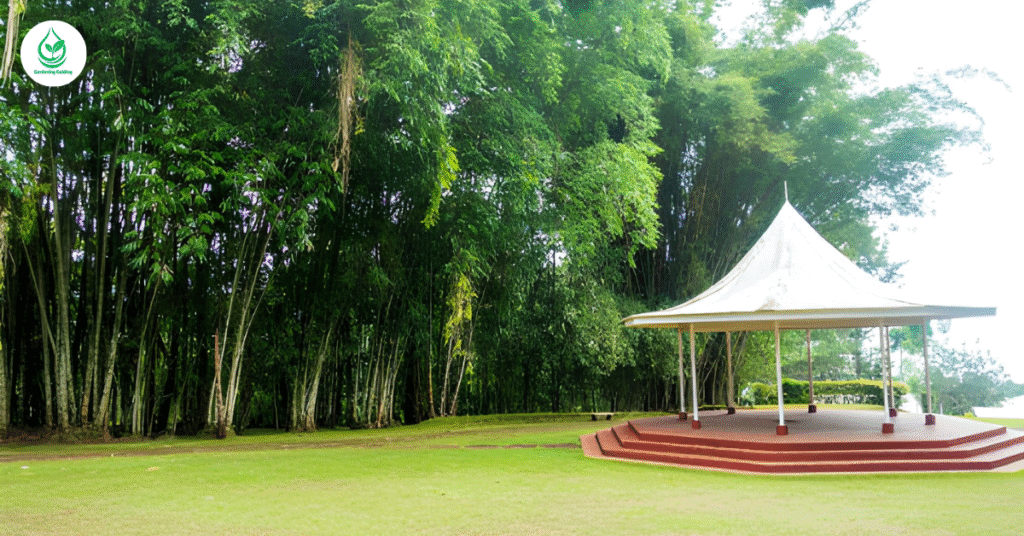
5. Bamboo Promotes Biodiversity and Healthy Ecosystems
A bamboo garden doesn’t just benefit you — it benefits wildlife too. Bamboo groves provide a natural habitat for various birds, insects, and small mammals. The dense foliage offers shelter, nesting areas, and a source of food, contributing to the overall biodiversity of your garden.
In eco-landscaping, promoting biodiversity is crucial for maintaining balance in the ecosystem. Bamboo helps by improving soil quality, retaining moisture, and reducing harmful runoff. Its root system supports beneficial microbes, keeping the soil alive and fertile for other plants to grow.
Additionally, bamboo can be used alongside flowering plants, shrubs, and water elements to create a mini ecosystem in your yard. Imagine butterflies fluttering around, birds chirping in the shade, and the soft rustle of bamboo leaves — it’s a living, breathing paradise that brings nature closer to your doorstep.
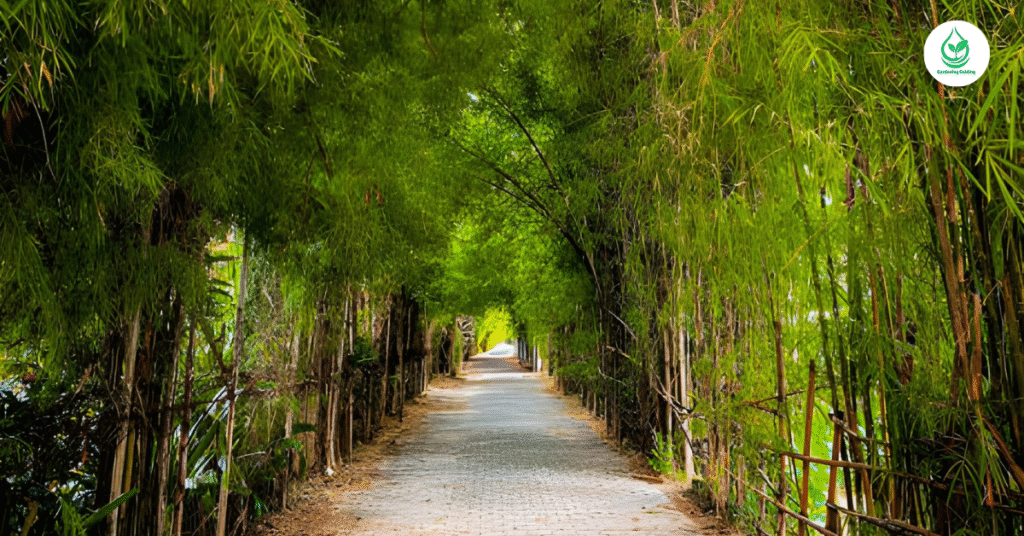
Comparison Table: Bamboo vs. Traditional Landscaping Plants
| Feature | Bamboo Garden | Traditional Plants |
| Growth Rate | Extremely fast (up to 3 feet/day) | Slow to moderate |
| Maintenance | Very low | Moderate to high |
| Water Needs | Minimal | Often higher |
| Lifespan | Long-term (decades) | Shorter |
| Environmental Impact | Highly eco-friendly, renewable | Varies, often less sustainable |
| Aesthetic Appeal | Modern, tropical, calming | Depends on species |
| Soil Benefits | Prevents erosion, enriches soil | Moderate |
| Cost Efficiency | Cost-effective over time | May need frequent replacement |
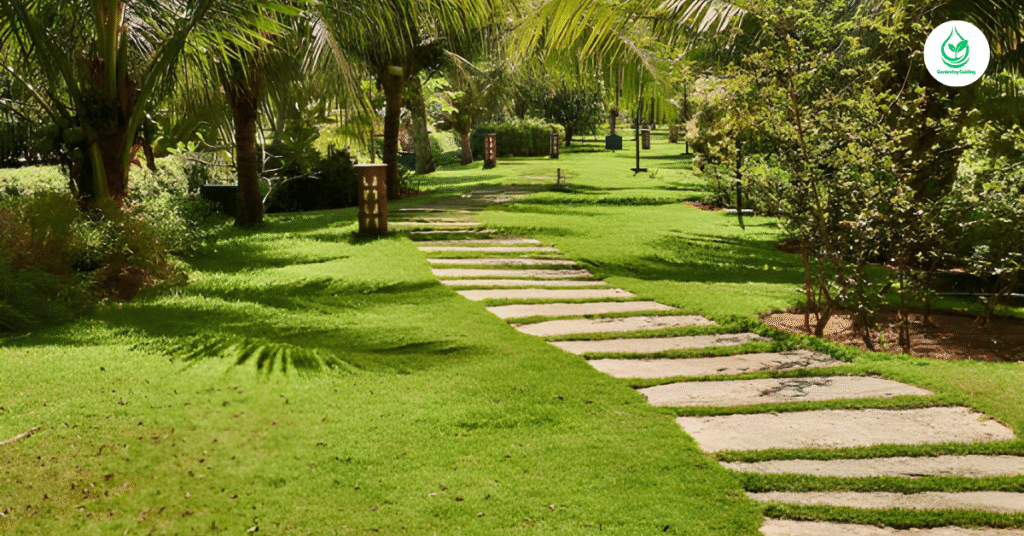
Pros of Bamboo Gardens
- Sustainable and Renewable – Grows quickly without replanting.
- Low Maintenance – Requires little water or fertilizer.
- Visually Stunning – Adds natural elegance and calmness.
- Air Purifying – Absorbs CO₂ and produces more oxygen.
- Soil Friendly – Prevents erosion and enriches soil health.
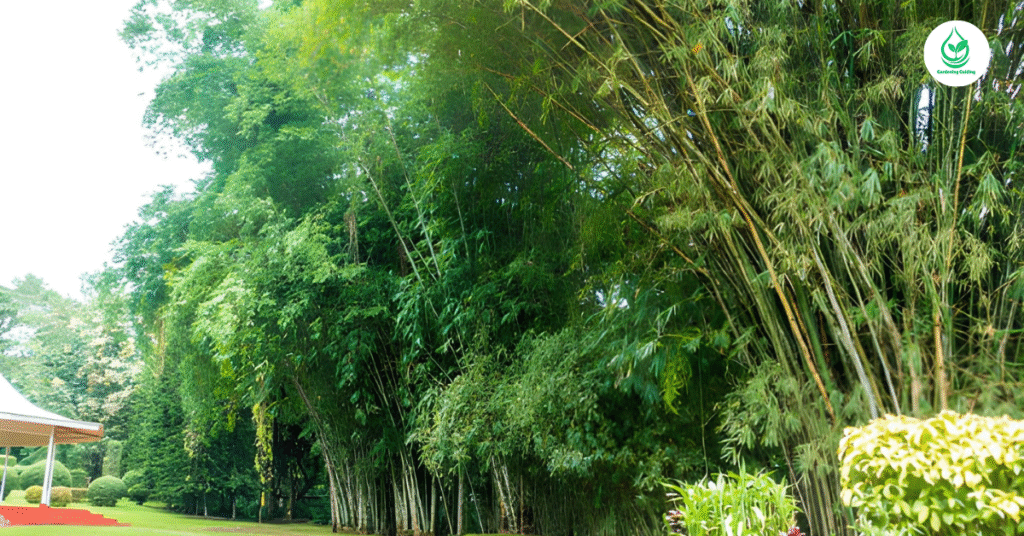
Cons of Bamboo Gardens
- Can Spread Quickly – Some species can grow invasively.
- Needs Space to Grow – May not suit very small gardens.
- Requires Proper Containment – Root barriers are needed for running types.
- Regular Pruning – To maintain height and shape.
- Cold Sensitivity – Some tropical species struggle in harsh winters.
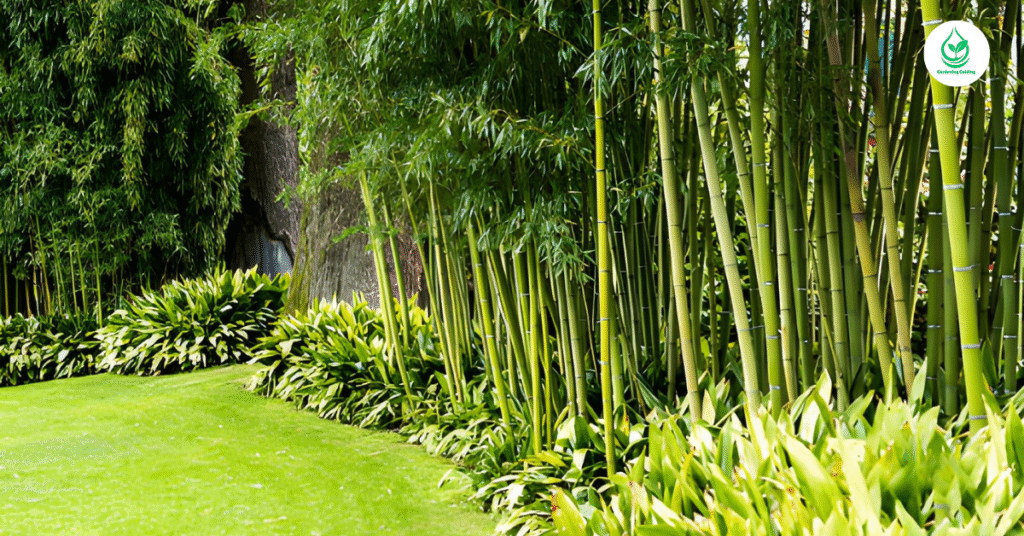
Frequently Asked Questions (FAQs)
1. Is bamboo really eco-friendly?
Yes, bamboo is one of the most sustainable plants on Earth. It grows fast, regenerates naturally, and helps reduce deforestation.
2. Does bamboo damage the soil?
Not at all. Bamboo improves soil health, prevents erosion, and keeps the ground firm.
3. What type of bamboo is best for small gardens?
Clumping bamboo varieties like Bambusa multiplex or Fargesia rufa are perfect since they don’t spread aggressively.
4. How much sunlight does bamboo need?
Most bamboo types love sunlight but can also tolerate partial shade, making them adaptable to various climates.
5. Can bamboo survive in cold regions?
Yes, cold-hardy species like Fargesia robusta can survive freezing temperatures.
6. Is bamboo expensive to maintain?
No, bamboo is cost-effective. Once established, it needs minimal care compared to most garden plants.
7. How can I control bamboo growth?
Install root barriers or choose non-invasive clumping types to prevent spreading.
8. Does bamboo attract pests or insects?
Bamboo is naturally pest-resistant, making it one of the easiest plants to grow organically.
9. Can bamboo grow indoors?
Yes, smaller varieties can thrive in pots near bright windows.
10. Why is bamboo ideal for eco-friendly landscaping?
Because it combines sustainability, beauty, and functionality — all while benefiting the planet and reducing your carbon footprint.
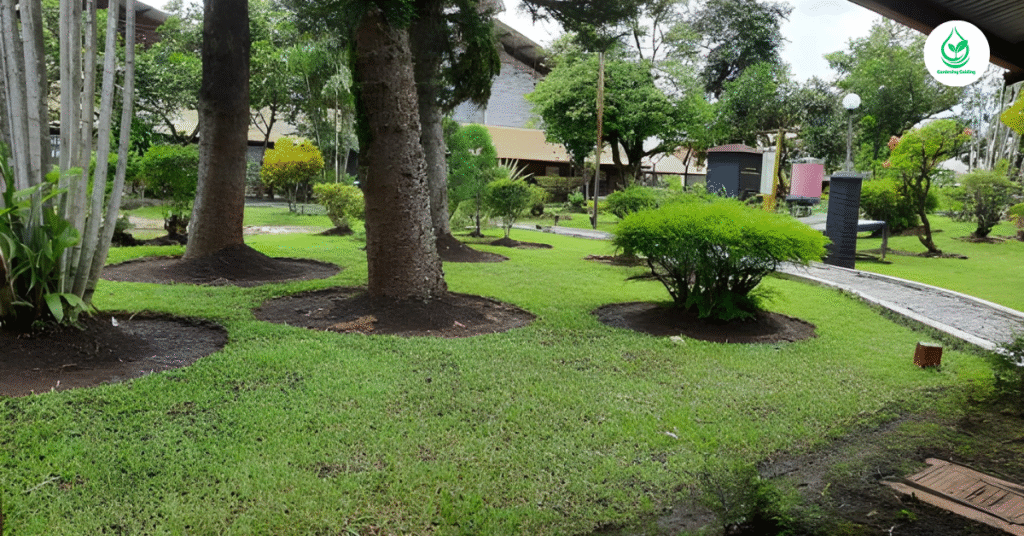
Conclusion
A bamboo garden isn’t just a visual masterpiece — it’s a symbol of harmony between nature and modern living. From improving air quality to conserving soil and offering aesthetic charm, bamboo proves to be one of the best eco-friendly landscaping solutions.
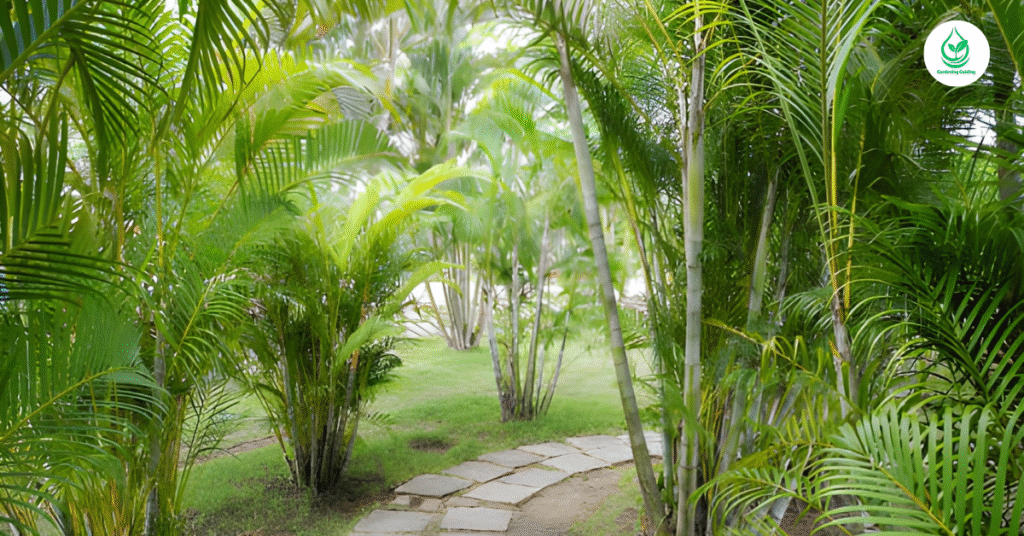
By choosing bamboo, you’re not only designing a garden that looks stunning year-round but also making a positive environmental impact. Whether you’re creating a private retreat, an elegant pathway, or a full-scale eco-garden, bamboo adds life, peace, and sustainability to your surroundings.

